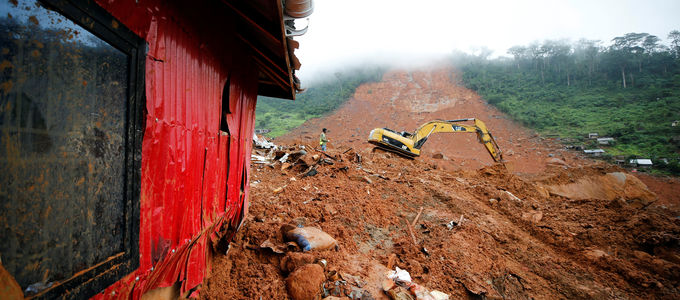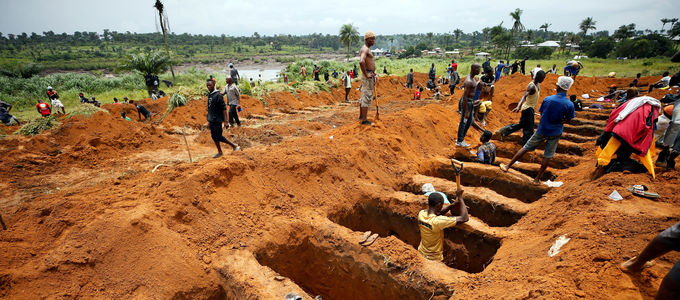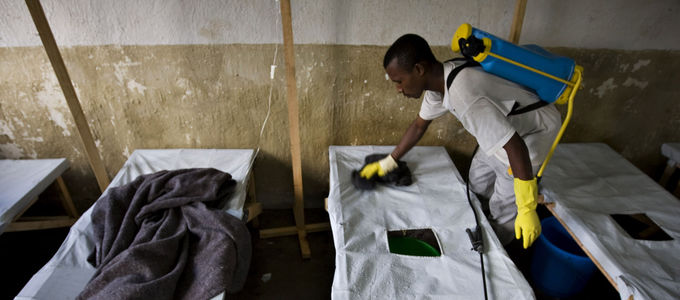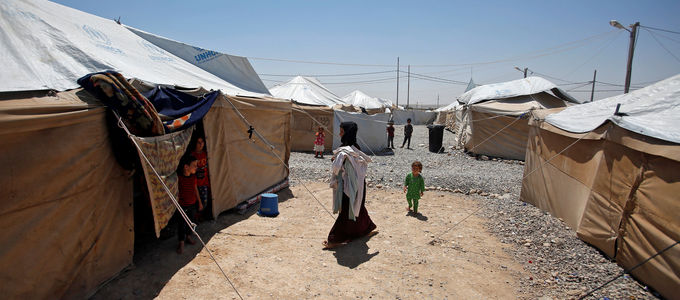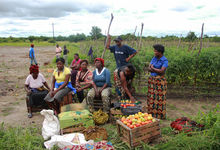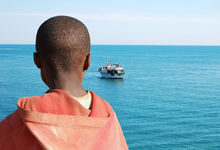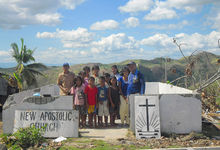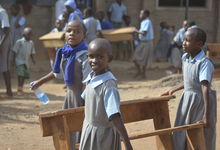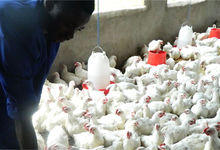Intercession and genuine compassion
Let us not only intercede for those whose misery and suffering we see, but also pray for those whose distress is far less visible, such as the victims of natural disasters and conflicts which are hardly mentioned. Three examples from Sierra Leone, the Democratic Republic of the Congo, and Iraq.
Mudslide in Sierra Leone
The website of the New Apostolic Church in Sierra Leone refers to the disasters that have struck the country as the “twin disaster”. The country in West Africa has been lashed by torrential rains and flooding. More than 30,000 people have lost their homes. The rains caused a mudslide in Regent, near the national capital Freetown, which took the lives of hundreds of people. Hundreds of homes were buried.
So far, five hundred bodies have been recovered. More than six hundred people are still missing, OCHA reports, the UN Office for the Coordination of Humanitarian Affairs. Authorities fear an outbreak of cholera and typhoid because wells have been contaminated over a large area.
Cholera epidemic in the Democratic Republic of the Congo
People in the eastern part of the Democratic Republic of the Congo are experiencing a similar fate, OCHA reports. The province of South Kivu has officially declared an outbreak of cholera. Its declaration came a few days after North Kivu declared an epidemic. The situation in the province of Tanganyika is getting worse. So far, nearly 500 cholera deaths have been reported this year—more than in the whole of 2016.
A landslide in the north-eastern province of Ituri claimed the lives of 150 people. An estimated 280 children lost their parents in the disaster. Search and rescue operations were stopped since neither the state nor the humanitarian relief organisations have the necessary equipment to excavate the bodies.
Mass exodus in Iraq
Telafar was once home to an estimated 40,000 people. The city and the district of the same name are situated in north-western Iraq on the border to Syria. More than 30,000 people have fled their homes in recent days, according to a report by the UN, because of impending military operations to retake Telafar from the Islamic State (IS).
OCHA, the UN Office for the Coordination of Humanitarian Affairs, has two major concerns. If the number of people displaced is too large, there will be challenges because of limited transportation capabilities. The military is capable of transporting an estimated 500 to 3,000 people every day. Moreover, water and food are running low in the areas held by the IS.
More than prayers
“What these people are currently going through is devastating,” Peter Johanning, the spokesman of the New Apostolic Church says. “Our hearts go out to those who are fighting for their lives or who have lost loved ones. Our prayers are with them.”
This compassion is also evident in the divine services of Chief Apostle Jean-Luc Schneider. He never forgets to pray for those who are suffering. At the end of July in Barcelona, for example, he said: “We cannot even begin to list all the situations because we are not even aware of everything and because none of us can assess the burdens of others. But You, God, know everything. And You can help everyone at all times. That is our conviction. As Your children we ask You: help our neighbour, give comfort where possible, relieve misery, and establish peace.”
On the occasion of World Humanitarian Day, nac.today reported that the New Apostolic Church not only prays, but is also involved in providing humanitarian aid.
Article info
Author:
Date:
Keywords:
Andreas Rother
25.08.2017
Democratic Republic of the Congo,
Sierra Leone,
Iraq


